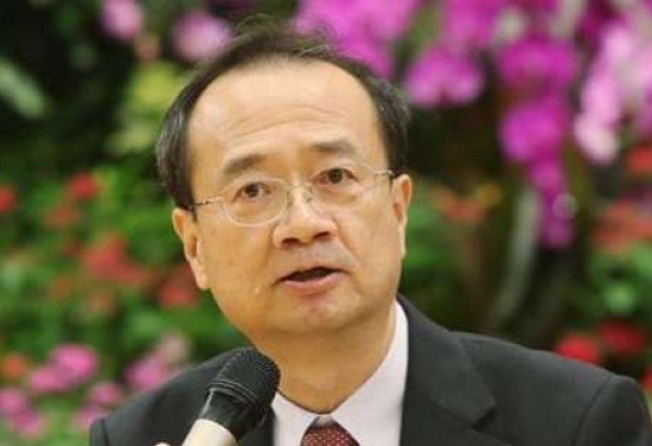Nominee to head Taiwan’s judiciary inflames questions on Tsai’s endgame
Taipei moves to soothe speculation, saying Hsu Tzong-li expressing ‘personal opinion’

Taipei has moved to quell speculation the leadership might resort to confrontational tactics with Beijing after a candidate for the head of the judiciary authority said cross-strait ties were a “special state-to-state” relationship.
The remarks, by Hsu Tzong-li, echo the controversial “state-to-state” theory espoused by former president Lee Teng-hui in 1999 and have sparked questions over whether Hsu would push for a revision of the constitution to make Taiwan officially independent.
Hsu has been nominated by Taiwanese President Tsai Ing-wen to serve as chief justice of the Judicial Yuan. At a confirmation hearing, Hsu was asked by Kuomintang legislator Wang Yu-min about an article Hsu wrote in 1996 in which he said the Republic of China, as Taiwan is formally known, was “factually and legally independent from all other nations, including the People’s Republic of China”.
Hsu said he believed cross-strait ties were a “special state-to-state” relationship, akin to that between the former East and West Germany.
The sovereignty of the ROC did not extend to all of China, he said. “We elect our own parliament, and our parliamentarians as well as president are elected by the 23 million people in Taiwan,” Hsu said in a video clip of Thursday’s confirmation hearing released by the legislature.
Asked about the stipulation in the constitution that Taiwan and the mainland were considered areas of two sides, Hsu said if that were true, each area should elect their own “area representative,” but this wasn’t the case.
Hsu, 60, was appointed by former president Chen Shui-bian of the independence-leaning Democratic Progressive Party as a member of the Council of Grand Justices, which is in charge of interpreting constitutional affairs, in 2003 and stepped down at the end of his term in 2011.
His remarks, which echo the controversial “state-to-state” theory espoused by former president Lee Teng-hui in 1999, have sparked questions over whether Hsu would push for a revision of the constitution to make Taiwan officially independent.
The island’s Mainland Affairs Council sought to curtail the speculation, saying Hsu was merely expressing his personal opinion. “The new government will adhere to the goal and policy as expounded by President Tsai in her National Day address that she will continue to promote peaceful development of cross-strait relations in line with the Republic of China constitution, the act and relevant laws governing relations between the two sides,” the council said in a statement.
Ni Yongjie, deputy director of the Shanghai Institute of Taiwan Studies, said Hsu’s comments were “openly supporting de jure independence”.